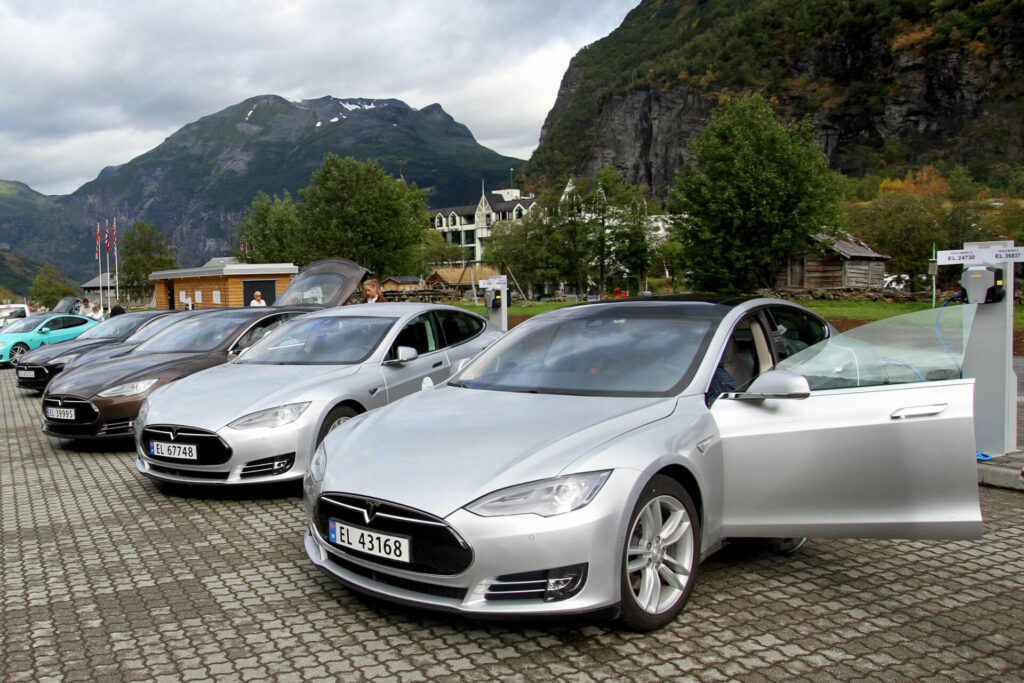While many countries, including Belgium, are only now starting to ramp up efforts to switch to a greener car fleet, one in five cars on Norwegian roads and four in five sold last year are fully electric, both new world records.
A total of 174,329 new passenger cars were registered in Norway last year, of which 138,265 were electric vehicles (EVs), accounting for a 79.3% share of the total, figures published by Norway's Road Traffic Information Council (OFV). This marks a new world record, breaking its own previous record set in 2021 when 64.5% of newly registered vehicles were zero-emission cars.
By comparison, electric cars accounted for 8.6% of new registrations in the European Union in the first nine months of 2022. While the number of all-electric passenger cars increased by 75% in Belgium, just 7.5% of all passenger cars are electric, the latest Statbel figures published in September last year showed.
In Norway, never before were more cars registered in one month than in December, when fully electric cars captured 82.8% of sales.
This is largely explained by the fact that a tax change came into effect on 1 January making some models more expensive. Now, VAT exemption (at a rate of 25%) on the purchase of a new electric vehicle is only valid up to a purchase price of 500,000 kroner (about €47,500), with sums above this ceiling being subject to tax. A tax has also been introduced based on the cars’ weight.
Gradual success story
Today, one in five cars on Norwegian roads is fully electric, another world record. The Scandinavian country's national goal is that all new cars sold by 2025 should be zero-emission, either electric or hydrogen-powered.
The speed of the transition so far is closely related to policy instruments and a substantial package of incentives to promote zero-emission vehicles into the market, which have been gradually introduced by different governments since the early 1990s and sped up by a broad coalition of parties since to ensure that zero- and low-emission cars are more economically beneficial than high emission cars.
Related News
- Belgian study shows the benefits of recycling electric vehicle batteries
- Belgian motorists 'skeptical' of switching to electric cars, says survey
However, as the segment of EVs has grown in recent years, the authorities have begun to cut back on certain advantages that weigh heavily on public accounts, even with the "polluter pays principle," which resulted in higher taxes on polluting cars partly financing incentives for zero-emission cars.
While in Belgium, the share of low- and zero-emissions cars is growing more slowly, especially among corporate users, the country is lagging behind compared to neighbouring states when it comes to its charging infrastructure, which is a key deterrent for people to making the switch to EVs.

